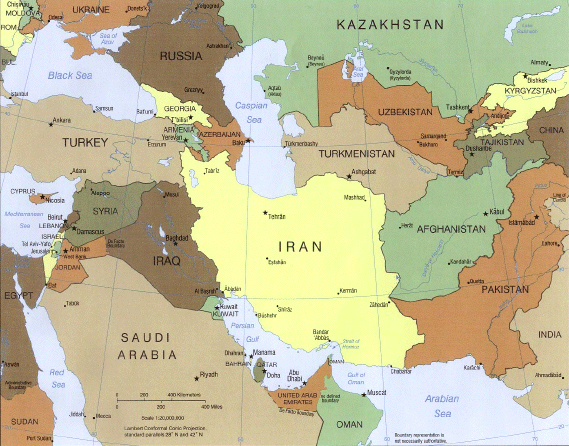 Picture Credit: Mentalwhir |
Articles
The Expanding US War in Pakistan (February 20, 2010)
Three US Special Forces soldiers have died in Lower Dir. This has raised questions about US military presence in Pakistan. The Pentagon maintains that the US soldiers were on a training mission at the invitation of the Pakistani government and were not engaged in direct combat. However, the Obama Administration is continuing the Bush-era philosophy of "preparing the battlefield." This occurs where "black" operations are followed by "white" operations and then conventional US forces and is used to evade the Congressional oversight of covert military operations. (The Nation)
US Military Joins CIA's Drone War in Pakistan (December 10, 2009)
Over the past year and a half, the US has been escalating drone attacks in Pakistan, killing as many as one thousand people. The CIA is largely credited with running these operations, though the US air force has recently been playing a substantial role, and Private Security Contractor Blackwater (Xe) has also been involved. US President Barack Obama has recently authorized a further widening of the drone war in Pakistan. (Wired)
US Push to Expand in Pakistan Meets Resistance (October 6, 2009)
The US wants to significantly expand its embassy in Pakistan, as well as increasing the number of private security contractors and armored vehicles there. Pakistani citizens, politicians and security officials talk about the US presence as an "occupation." Amidst growing resistance, the US has offered an aid package to "sweeten" the deal, a package which Pakistani Senator Tariq Aziz, referred to as "the charter for new colonization." (New York Times)
Pakistan, Proliferation, and US Priorities (February 25, 2009)
The Pakistani government released nuclear engineer A.Q. Kahn, "the father of Pakistan's bomb" after a four-year house arrest for illicit nuclear trading. Kahn ran a network that supplied countries (Iran, Libya, and North Korea) with nuclear technologies. In this article Professor Zia Mian shows how US policy towards proliferation has been flexible and influenced by strategic interests, particularly with Pakistan. Kahn developed Pakistan's nuclear bomb with help from European, North American, and Japanese companies that were keen at selling components to Pakistan's enrichment program. (Foreign Policy In Focus)
US Weighs Stepped-Up Military Forays into Pakistan (August 8, 2008)
Top US officials want President Bush to step up military operations against armed tribal groups along the Afghan-Pakistani border. The US faces time pressure to pursue these militants as Pakistani President Pervez Musharraf, a chief US ally who condones US military intervention, faces possible impeachment. Some US defense officials fear an increase in military operations would alienate new Pakistani officials, who would then disallow the US from using Pakistan as a base to redeploy troops to Afghanistan. (Associated Press)
US Officials See Waste in Billions Sent to Pakistan (December 24, 2007)
Members of US Congress and senior military officers have complained that the Bush administration spent USD$ 5 billion in military aid without thorough oversight or effective results. The military aid was initially meant to support Pakistani military efforts against Al Qaeda and the Taliban. Instead, the Pakistani government diverted part of the aid to serve its national political interests, notably concerning India. As a result, Pakistani troops engaged in the tribal area with defective training and obsolete military equipment. This waste of public money highlights the failure of a strategy that consists of pouring billions to buy the military cooperation of a foreign country. (New York Times)
Imperialism 101 (September 17, 2006)
This ZNet article chronicles US imperial intervention in the affairs of other countries. The Bush administration has taken these tendencies to great lengths, engaging in preventative wars when it claims a "perceived threat" to US national security exists. The article concludes that throughout a great portion of history, US governments have implemented regime changes abroad under the guise of spreading democracy. They have done so through diplomacy, bribing and giving money to the opposition, covertly assassinating leaders or engaging in war.
Casual Imperialism (August 16, 2003)
Professor Vijay Prashad compares British colonialism in India to the current US occupation of Iraq. He concludes that the US occupation constitutes a "casual" form of imperialism, a type of indirect colonialism. (People's Weekly World)
Imperial History Repeats Itself (July 3, 2003)
Post-war US troops in Iraq remain vulnerable to attacks by people struggling under foreign rule. Washington's solution resembles that of London's at the beginning of the 20th century: call for reinforcements from other countries that did not take part in the attack. (Guardian)
The Perils of Empire (April 20, 2003)
The British 20th century imperialism and the US neo-conservatives' expansionist policy of today are strikingly similar. The British too, wanted to diminish French, Russian and German influence in the region. They sought secure access to Middle East oil, and to establish military bases. (Washington Post)

